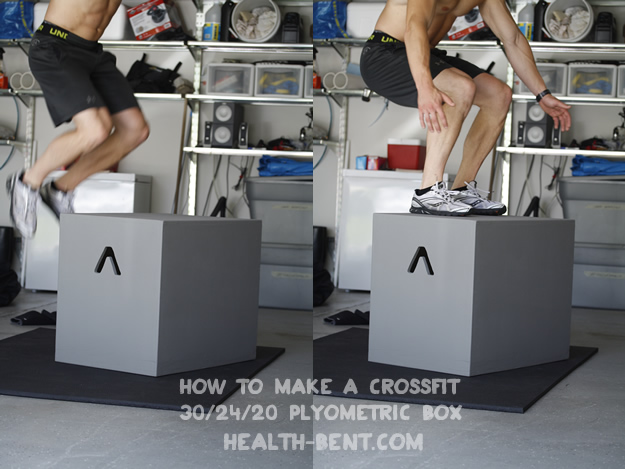
Tools and Materials
- 3/4†sheet of plywood 8’x4’
- 2†deck screws (box)
- tube wood glue (or bottle)
- 8’ 2×4 board
- sandable wood putty
- paint (we used and recommend “Deck Over†by Behr)
- circular saw
- jig saw
- drill
- caulk gun (not required if your wood glue is in a squeeze bottle)
- saw horses
- 4’ level or other straight edge
- clamps
- sandpaper 100 grit
- putty knife
- paint brush
- paint roller
- paint tray
Recommended Tools (but not required)
- router with roundover bit (1/2-3/4â€)
- finish nail gun with 16 ga, 2†nails and compressor to go with
- planer
Cost
about $60 per box
[divider]
Step 1
Procure your materials. Somebody you know has a jigsaw and stuff right? Be very nice to them for a few days and then pop the question. I recommend using birch or blondewood plywood. It’s a nicer grade and is lighter but also more expensive. Regular 3/4†plywood will work but that might be one heavy box…maybe that’ll be the other part of your workout.
Step 2
Pre-cut all your sides. In order to make really straight cuts with your circular saw…you’re going to want to clamp your level or other straight edge to the board to act as a guide. You’ll need to measure how far your saw blade is from the edge of the saw base. If you add that to the measurement you want to cut…and clamp the straight edge there…the blade will land right where you want it to for your cut as you run the edge of the base down the straight edge. Remember to measure twice and cut once…double check where the blade will hit once you have the straight edge in place. You do not want to eff up this expensive wood! With your plywood laying on the saw horses measure each side of your board and clamp the straight edge between the marks. Cut all your pieces to size per the drawing…labeling them with pencil as you go might help keep it all straight. Gray pieces are scraps, you’ll find plenty of uses for those. Be creative.
Step 3
Measure and cut the holes for your handles. I used a printed out template of our gym logo but I kinda doubt you’ll want that…a standard 6â€x2†rectangle would work…or with the rounded ends as shown in the pic. Sorinex uses the Bosco mustache for their cut out…maybe you’d like a kitty cat or something…go for it. Anyway, you’ll drill a pilot hole on the inside of your sketched on cut out shape big enough for the jig saw blade to fit to get you started. Now trace the lines with your jigsaw until fully cut. Sand up the edges of your cutout until you’re satisfied with them.
Step 4
Ready to assemble. This is where I use my nail gun and compressor to pop a nail or 3 in each side as I’m putting it together. This way I can put all the sides except the top together and it will stay before I put in all the screws. When using the nail gun method, I run a bead of glue on the edge of the plywood and start with a front/back attached to the bottom. Then add the left and right sides (make sure your handles are both in the same orientation) with more glue at all contact points, and finally attaching the front. Remember, don’t attach the top just yet.
*If you don’t have a nail gun…I’d suggest attaching the back and left or right side together first using the pre-drill and screw method from step 5. Then repeat with the other left/right side and the front one at a time until you have a box with no top or bottom. Now attach the bottom in the same fashion and move on to step 6.
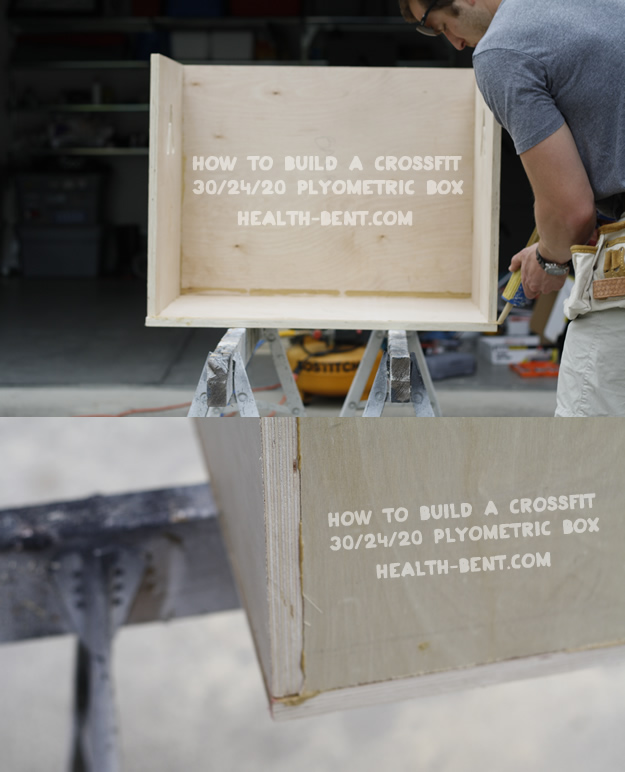
Step 5
Pre-drill and screw your box together. Screws go through the face of each overlapping side…into the edge behind it. Referring to the PDF…screws go through the yellow sides into the blue and through the red sides into the blue and yellow. I put a screw about 2†from any edge and then approximately 4†spacing from there. I like to measure it out and put pencil marks where the screws will go just so they are the same on all sides. Pre-drill where the screw will go with a bit smaller than your screw. This will prevent any potential splitting of the wood. Then drive in your screw until the head is a little below the surface. Do this for all sides. Still don’t put your top on.
Step 6
Attach inner bracing. I can’t say that this step is 100% necessary but I like the confidence it gives me based on the way this box is constructed (which is easier than other methods that use routers to overlap each edge). I add a cross brace in the 30†dimension (between the left and right side) and in the 20†dimension (between the front and back). To add the cross brace you’ll need to cut your 2×4 so you have a 28-1/2†piece and an 18-1/2†piece. Place them inside your box (since your top is still off) and screw them in to secure. I put in the long brace first and then the shorter one. I’ll split the difference of the “middle†of the box since one brace has to go on top of the other…they can’t both be in the dead center if you get my drift.
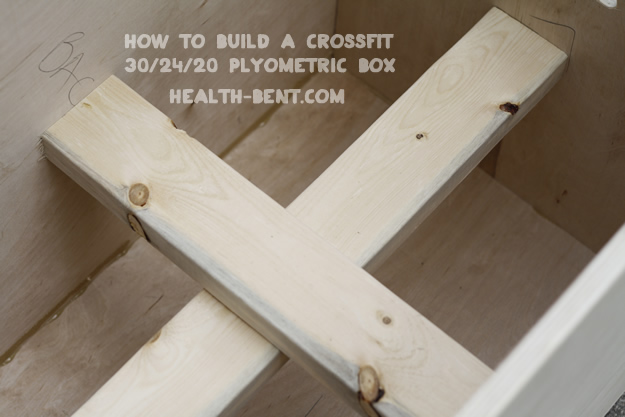
Step 7
Now you can finally attach your top. This is the last chance you’ll have to add any time capsule objects you might want to seal inside. So attach the top with glue and the pre-drill and screw method from Step 5.
Step 8
Pretty good. You could surely use your box just like this. Rough edges might even give you added incentive to do really good box jumps. BUT…if you want to go a little further to clean it up read on. Depending on how amazing you were at cutting your sides perfectly square…you could have a little overhang on some sides. You could try to sand this tediously (by hand or with a sander) to get them flush OR you could use a planer. I use the planer to “plane†the two surfaces together. If I wasn’t going to paint the boxes I wouldn’t do this because it “skins†off the plywood and makes it a little ugly, but I plan on painting them so I don’t mind.
Step 9
Now that’s done, I do go a step further in rounding the edge, some people like to leave their shin skin in place. Again, you could get them sorta smooth with some diligent sanding but I prefer to USE MORE POWER TOOLS. So I then router the edges with a 1/2 or 3/4†roundover bit.
Step 10
Almost done. If you don’t plan on painting…I’d probably skip this step too and just leave the screws exposed. But I like to make them look really fancy so you’ll want to fill with sandable wood putty. Don’t screw up and buy “hole filler†that never hardens. It will say on the package. Fill the holes with a putty knife and leave it to dry. Once dry sand off excess until smooth. Take this opportunity to give the box a good all over sanding just to be sure it’s ready for paint.
Step 11
You’re ready for paint. Make sure you have chosen the perfect shade to match your decor. As listed in the materials I really like a deck paint called “Deck Over†by Behr. You can find it at Home Depot. It has some sand/texture in it and dries to a hard, durable finish. Perfect for jumping on, no? It requires two coats. Use your brush and roller as advised on the can of the type of paint you’re using.
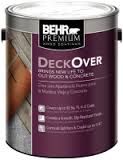
Step 12
21-15-9 Deadlifts and Box-jumps. Go.
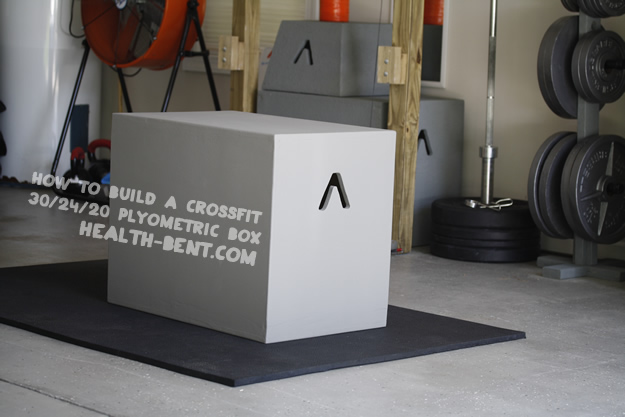
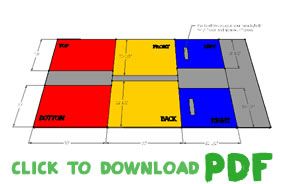
Leave a Reply